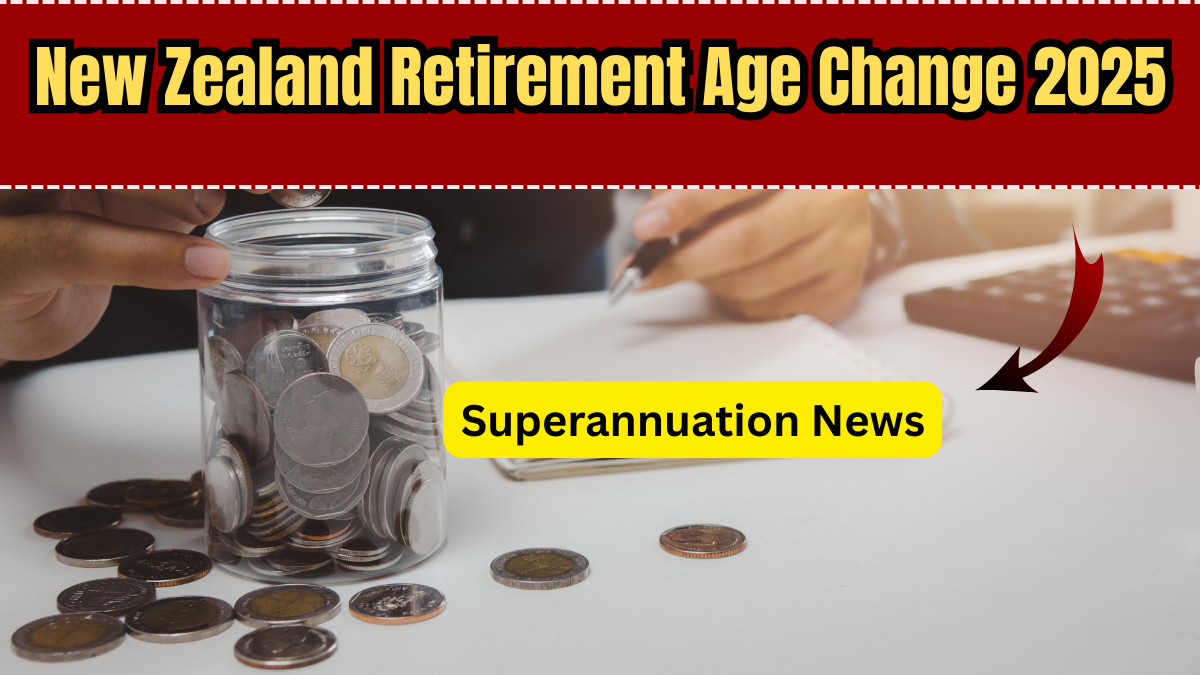The government has officially introduced discussions regarding the New Zealand retirement age change 2025, a move that could significantly affect future retirees. While superannuation policies have long been a bedrock of the nation’s social welfare system, evolving demographic realities are pushing for major reforms.
Under the superannuation news announced recently, these changes are aimed at ensuring the long-term sustainability of New Zealand’s pension system while adapting to a changing economy and longer life expectancies.

What Is the Proposed Retirement Age Change?
The proposed New Zealand retirement age change 2025 recommends increasing the eligibility age for receiving the New Zealand Superannuation (NZ Super) from 65 to 67 years. This transition would occur gradually:
-
65.5 years by 2028
-
66 years by 2030
-
67 years by 2033
According to age pension updates, the change ensures that adjustments are manageable for citizens close to retirement while allowing younger generations time to plan accordingly.
Why the Retirement Age Needs Adjustment
There are several driving factors behind the New Zealand retirement age change 2025:
-
People are living longer and healthier lives
-
Current retirement age is becoming financially unsustainable
-
Superannuation costs are projected to double by 2050
-
Economic productivity demands a shift in the working-age population
These points were emphasized in the latest superannuation news presented by government agencies.
How This Will Affect Future Retirees
The impact of the age pension updates will vary:
-
Near-retirees: People currently aged 60 and older will not be affected.
-
Younger workers: Citizens aged under 55 should plan for retirement at 67.
-
Government support: Transition programs and savings incentives will be expanded to help ease the change.
The New Zealand retirement policy will continue offering generous pension rates but with adjusted timelines.
Preparation Steps for Citizens
To adapt to the New Zealand retirement age change 2025, individuals are encouraged to:
-
Increase contributions to KiwiSaver
-
Explore voluntary retirement savings options
-
Plan for delayed retirement scenarios
-
Attend government workshops on retirement financial planning
Following these steps can help secure a financially stable retirement despite changes under superannuation news.
Conclusion
The New Zealand retirement age change 2025 is a reality citizens must prepare for. While it poses some challenges, with proactive financial planning and government support initiatives, New Zealanders can still look forward to a secure and dignified retirement.
FAQs
What is the new proposed retirement age in New Zealand?
The proposed new retirement age is 67, with gradual increments starting from 2028.
Will current pensioners be affected by the change?
No, people already receiving pensions or close to retiring will not be affected.
Why is the government increasing the retirement age?
Due to longer life expectancies and rising pension costs, adjustments are necessary to sustain the system.
How can younger New Zealanders prepare for the new retirement age?
By boosting KiwiSaver contributions, managing personal savings, and planning for longer work life.
When will the full transition to age 67 happen?
The full retirement age of 67 will be implemented by 2033 according to current proposals.
Click here to know more.
